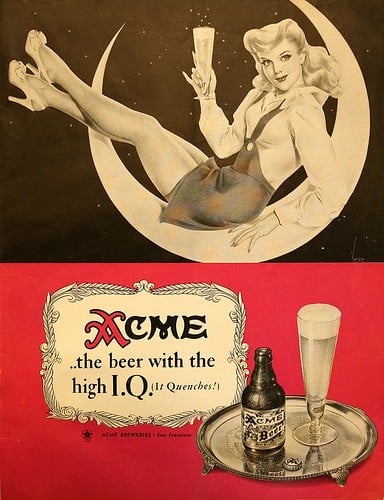I’m just trying to understand. Erdogan in Turkey, Putin in Russia, Orban in Hungary etc… Why do these leaders still get so much support after all they’ve done? What do they exactly like about them?
Aren’t these people seeing a massive drop in their quality of life?
Step 1. Take control over all types of media Step 2. Eliminate opposition Step3. ??? Step 4. Profites !
People keep voting for them because they foster and environnement where there is no one else to vote for.
Last election in Turkey may have looked like a close call for Erdogan. But during the campaign he got over 85% of media coverage, while the other candidates have to share the crumbs (I am pulling those numbers out of my ass).
People like authoritarians. Especially one they agree with, which many do.
Even in the US we have children’s programming replete with kings and queens ruling over people. How many people watch things like Black Panther and think “this would be so much better with a Congress debating what direction to take”? I mean other than me…
Dictators get things done compared to committees and legislatures. Nobody likes compromise.
There is a whole system of media devoted to getting normal folks to vote against their own interests. In the regimes you list (and I’d argue also in western so called liberal democracies too but to a lesser extent) the capitalist class and political class are so intertwined due to influence and corruption, that whatever the needs and whims of the leading politicians, the media machine will distract and manipulate. The same tactics that they use are the ones which have worked since the start of mass media, they know how human psychology works.
Appealing to emotional arguments, external threats, racism, nationalism. Remember these are political tools, unfortunately very effective ones, as we saw in fascism in the 1900s. A curious consequence is that often, the worse things get for the normal people, the easier it is for these malicious actors to spin and manipulate and blame it on an external force or political enemy which deflects blame or allows for more extreme political ideology to rise in a society. So you get an accelerated political extremism.
The same reason Republicans still manage to win elections… through massive amounts of fraud and “gaming the system”. People don’t understand how thoroughly “representative democracy” is rigged - it can barely even be called “representative,” never mind “democratic.”
You also have Democrats willing to work with Republicans to carve out their own gerrymandering districts. Jim Clyburn was recently exposed for helping the Republicans in his state carve up the biggest black majority city into small sections diluted by the suburban white voters. This created only one black majority area which is where Clyburn runs.
If it were properly sectioned off then maybe two or three districts could be made with higher black populations that would have to compete to maybe have black friendly candidates.
Jim Clyburn is an Uncle Tom like traitor to democracy. https://www.propublica.org/article/how-rep-james-clyburn-protected-his-district-at-a-cost-to-black-democrats
Once a competent authoritarian leader takes root, it becomes very hard to remove him: the necessary mechanisms, formal or informal, tend to be sabotaged - not at once, but more and more over the years. It also helps when some of opposition have their lives broken, when uncertainty about one’s own life is high, the value of human life low, when loyalty is placed above both competence and the law, and the law above competence, when the reputation of any possible contenders is questionable or made questionable, when people are used to the thought of futility of resistance (with fresh examples produced all the time) and being alone before the oppression, when somewhat educated people are made to think their views are in minority (independently of whether it’s the case) and some of less educated people have some of their misery alleviated (and are occasionally given some power they did not deserve) in return for voicing the pro-government position (even if a good measure of said misery is a consequence of the government’s actions).
The short answer is that they think the authoritarian is on their side.
The long answer is that people in groups are stupid and they have been manipulated into thinking the authoritarian is on their side
Because compromise is messy and progress is incremental and sometimes hearing someone yell words that sound true will make you feel like you’ve found the answer to all the political bullshit.
Those leaders offer simple answers to complex social problems and claim to restore their country to the halcyon days of yore. The days when there were no immigrants, liberals, degeneracy or whatever “came later to ruin the country.”
Also the voters may believe that voting against their interests somehow benefits them.
Some other factors that I have noticed -
- Since most of the democracies determine the result based on first past the post (FPTP) or closely related voting system, the candidates only need to get 50% of the voting population to agree with them. They focus on populist policies that resonate with at least 50.1% of the population even if those policies will be detrimental to the remaining 49.9%.
- The opposition is not seen as strong enough to lead the country. This was the case in recent Turkish elections and has been the case in the last 3 Indian elections. Erdogan and Modi keep winning because people who don’t want to vote for them are not convinced by the other candidates’ abilities to lead the country. So many of the opposing people don’t vote at all or have their votes fragmented across multiple candidates in FPTP systems. That was and also remains the concern with Biden in the US.
- Once these leaders are in power, they actively suppress the voice of the minorities, by controlling the media and law enforcement, or by making it harder for minorities to vote and express themselves. This reduces the total voting population in favor of these leaders which again benefits them get past the 50% votes. Ultimately, we observe the vicious cycle of more power consolidation over time and more authoritarianism.
In Hungary, one big reason is that the government has all the media coverage, and they basically created a false narrative that if Orbán loses, then a) the previous government will come back and no matter how bad things are right now, it will be WORSE, b) migrants will come and wreak havock, c) our sons will have to go to war (in the last election, the opposition lost a lot of votes because there was a billboard campaign stating that the new PM candidate would send soldiers to Ukraine), d) there will be some kind of woke dictatorship.
People also think that the bad quality of life is mostly the fault of the EU and the previous government (which was in power over a decade ago…), and that it’s okay that Orbán and his party steals from them because at least they’re “on their side”.
The government also provides some help to parents, which people find valuable, so they keep voting for FIDESZ.
The simple answer is people are stupid, and half of them are even stupider then you might think they are.
I would specify a bit, “stupid” is so broad and not really easy to see what’s actually going wrong.
People are biased and irrational by default. Beliefs do not require evidence, they are mostly formed just by hearing about things from an authorative voice, e.g. your parents, friends, or the media.
People also are by default all in on a belief, or all out. In their minds, admitting even one good thing about the opposite side is unforgivable treason, admitting just one bad thing about your own beliefs is admitting total defeat.
So if you don’t grow up in an environment where rationality is being taught, you’re simply not rational and thus fall victim to all these biases.
The same is by the way true also for democrats or whoever is not voting for the fascists. Just their beliefs were filled by other authorative voices around them. True rationalists knowing about their biases and actively trying to work against them and trying to get to the truth are very rare.
Democracies work when the voting populace is educated and informed. Unfortunately, humanity willfully avoids being either in favor of opinion and bias.
It’s not “humanity ignoring” it’s propaganda and misinfo.
Might as well be both.
💀
People are seeing a massive drop in their quality of life before they vote for an authoritarian.
That’s why they vote for strongmen - the neoliberals that were in charge before fucked everything up, and without any understanding of why that happened they just react by electing the opposition.
Except that leaders like Orban or Erdogan have been in power for like a decade already.
Sure, once these types get in to power they’re hard to dislodge.
Quality of life declines, people vote for a strongman. Then, once he’s in, he just has to make sure he isn’t the one that gets blamed for continuing declining quality of life. They usually control the media and suppress political opponents, and it doesn’t help that the alternative being offered is just a return to the previous neoliberal politics that oversaw the start of the decline in the first place.
Eventually people get fed up and turn to more radical solutions, but they have to lose faith in voting first.
Under crisis or perceived pressure, there is obvious distrust in the current system. And the desire for a strong leader comes out of a hope of the decisiveness and concentrated power will allow them to “cut through the red tape” and dislodge entrenched stakeholders preventing change. Additionally, if the political and economic system is really complex and have difficult problems that are very systemic and don’t have clear and immediate causes, this simplifying of the politics to all power being concentrated in an individual becomes desirable (this is Joseph Tainter’s idea that social systems that have become too dysfunctional will create “Caesarism”, his name for desiring a strong man leader).
The other major consideration is that a popular leader that has ties to multiple groups can paper over or avoid conflict between multiple stakeholders or polarized factions in a political system. This is why so much veneration and executive power was given to Washington in the US post-revolution, because that got around a lot of arguments and factional issues between North and South and other colony’s conflicting interests. Both Napolean Bonaparte and Loius Napoleon had this as their main opening for power in the post-Revolution chaos and conflicts in the Second Republic, respectively.
I guess a lot of it must be the belief that things could be better, that a country, organisation, etc is actually capable of so much more, but is holding back, and it just needs someone with the will to actually use it.
It reminds me a bit of Fargo, season 3 I think? Two of the main characters are getting constantly outplayed, but are still generally keeping to the confines, rules and routines of their regular lives. One of them, who is trying to deal with it, asks to be ‘unleashed’, to try and deal with the problem directly, no restrictions, the other eventually gives him permission. The guy sets out full of resolve and confidence, but ultimately falls completely flat, because really, pretty much nothing was being ‘held back’, and this direct approach also cost them their status. I think of it a lot looking at Russia at the moment, they could always do X if they really wanted to, but they don’t, but they could. Now they’ve crossed that line, and it has cost them dearly, but they had less in reserve than they seemed to think, now they will hint at more mobilisation, industrial capacity, etc to seem like they’re holding back.
When things are bad in some way, very few people are willing to accept that this is likely the best they can expect. The belief that they could do something if they wanted, is quite the cope, and if they actually do want to do the thing, then they will look to ‘strong’ leaders who claim to have the will to do just that. Then they usually flop.
Sometimes, though, this is completely true, as with your example, Napoleon was someone capable of unlocking the potential of France that had been held back initially by conservative ideas, then by factionalism and instability. But that was an example of extreme internal turmoil, that he was able to fix, while also being a legitimate genius, able to implement ideas decades ahead of his time, with an almost singular focus and determination. I don’t like Napoleon, but I have a great deal of respect for him, especially the earlier part of his career.
People always look for simple answers. Simple things that ‘need to be done’ to get the right outcome. It may be nationalising companies, eating the rich, building the wall, destroying Carthage or taking the Sudetenland. The question is; 1. will these actions achieve the outcomes they seek, and b) what will it cost? Because it’s easy to look at politicians as being malicious, scheming and evil, but really, if there’s such an easy fix to massively improve everyones’ lives, even if they don’t entirely agree on an ideological level, it will secure votes for them for decades, so it will usually be done regardless. The only reason it wouldn’t is when they are worried that the cost will outweigh the benefit.
I guess a lot of it must be the belief that things could be better, that a country, organisation, etc is actually capable of so much more, but is holding back, and it just needs someone with the will to actually use it.
It reminds me a bit of Fargo, season 3 I think? Two of the main characters are getting constantly outplayed, but are still generally keeping to the confines, rules and routines of their regular lives. One of them, who is trying to deal with it, asks to be ‘unleashed’, to try and deal with the problem directly, no restrictions, the other eventually gives him permission. The guy sets out full of resolve and confidence, but ultimately falls completely flat, because really, pretty much nothing was being ‘held back’, and this direct approach also cost them their status. I think of it a lot looking at Russia at the moment, they could always do X if they really wanted to, but they don’t, but they could. Now they’ve crossed that line, and it has cost them dearly, but they had less in reserve than they seemed to think, now they will hint at more mobilisation, industrial capacity, etc to seem like they’re holding back.
When things are bad in some way, very few people are willing to accept that this is likely the best they can expect. The belief that they could do something if they wanted, is quite the cope, and if they actually do want to do the thing, then they will look to ‘strong’ leaders who claim to have the will to do just that. Then they usually flop.
Sometimes, though, this is completely true, as with your example, Napoleon was someone capable of unlocking the potential of France that had been held back initially by conservative ideas, then by factionalism and instability. But that was an example of extreme internal turmoil, that he was able to fix, while also being a legitimate genius, able to implement ideas decades ahead of his time, with an almost singular focus and determination. I don’t like Napoleon, but I have a great deal of respect for him, especially the earlier part of his career.
People always look for simple answers. Simple things that ‘need to be done’ to get the right outcome. It may be nationalising companies, eating the rich, building the wall, destroying Carthage or taking the Sudetenland. The question is; 1. will these actions achieve the outcomes they seek, and b) what will it cost? Because it’s easy to look at politicians as being malicious, scheming and evil, but really, if there’s such an easy fix to massively improve everyones’ lives, even if they don’t entirely agree on an ideological level, it will secure votes for them for decades, so it will usually be done regardless. The only reason it wouldn’t is when they are worried that the cost will outweigh the benefit.
I’d say the average person just doesn’t want to deal with politics. Instead, they choose the easy way out and vote one or a small group of authoritarians to rule the whole system. Plus, authoritarians have historically been equated to social stability and security. Can’t have violent political demonstrations or “problematic speech” under people like Putin or Kim Jung-un; everything is “politically correct.” And once the authoritarians are in power, the people have no say or power anymore, and at the very least the people FEEL powerless against the government, and again choose the easy way out by keeping their head down and refusing to instigate a fight against the government force that would easily and brutally overpower them.
Plus, the authoritarian governments are quick to blame their enemies for the problems of the people, utilizing propaganda, and the people are either obediently putting their trust jn their government (many people in every nation, both liberal and authoritarian, tend to trust the “credible source” that is their government), or the people stay quiet to avoid becoming an enemy of the state. I could go on, but I think I’ll just say I digress right here. Feel free to chip in and let me know what y’all think! :)












